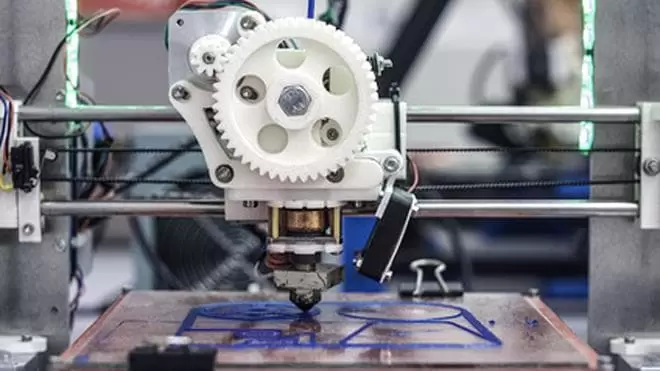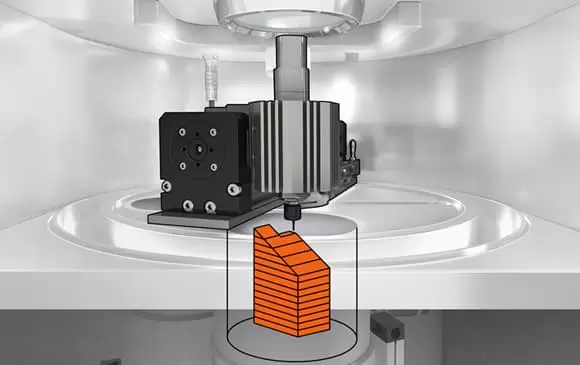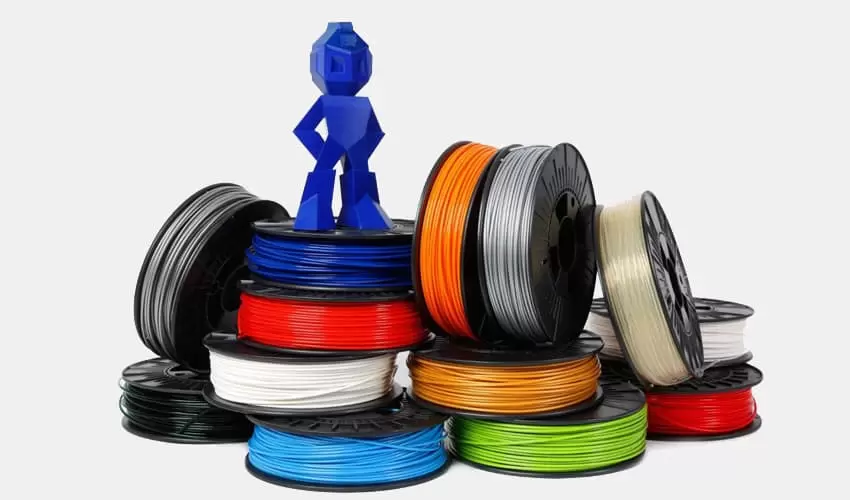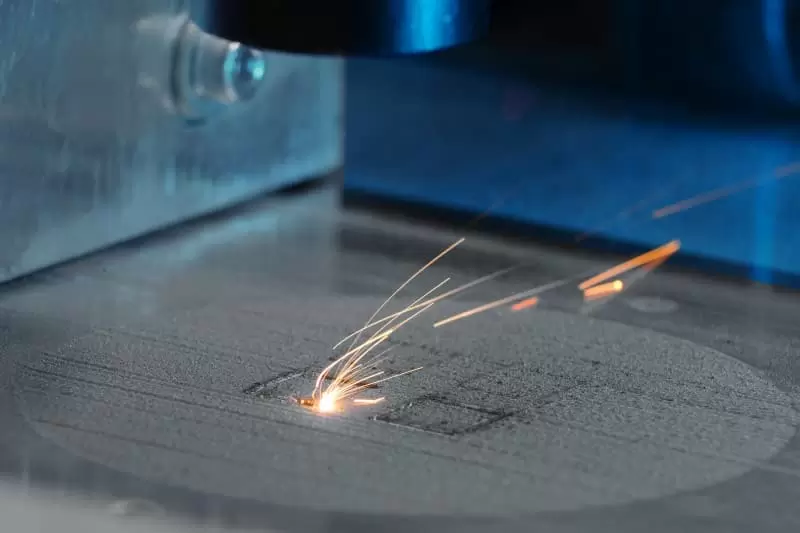Explore the world of 3D printing and learn about the common manufacturers in the industry. Discover the leading companies that are shaping the future of additive manufacturing.
Table of Contents:
- Introduction
- Understanding the 3D Printing Industry
- 2.1 What is 3D Printing?
- 2.2 Growth and Importance of the 3D Printing Industry
- Leading Manufacturers in the 3D Printing Industry
- 3.1 Stratasys
- 3.2 3D Systems
- 3.3 EOS
- 3.4 Formlabs
- 3.5 Ultimaker
- Specialized Manufacturers in the 3D Printing Industry
- 4.1 HP Inc.
- 4.2 Carbon
- 4.3 Markforged
- 4.4 Desktop Metal
- 4.5 Materialise
- Emerging Manufacturers in the 3D Printing Industry
- 5.1 XYZprinting
- 5.2 Prusa Research
- 5.3 Sindoh
- 5.4 Anycubic
- 5.5 Creality
- Conclusion
1. Introduction
The 3D printing industry has witnessed remarkable growth and innovation over the years, transforming the way products are designed and manufactured. From prototypes to customized production, 3D printing has revolutionized various sectors. In this comprehensive guide, we will explore the common manufacturers in the 3D printing industry, ranging from established leaders to emerging players. Let's dive into the world of additive manufacturing and discover the companies shaping its future.
2. Understanding the 3D Printing Industry
2.1 What is 3D Printing?
At its core, 3D printing, also known as additive manufacturing, is a process of creating three-dimensional objects by adding successive layers of material based on a digital design. It offers immense design freedom and allows for the production of complex geometries that traditional manufacturing methods struggle to achieve. 3D printing encompasses various technologies, including fused deposition modeling (FDM), stereolithography (SLA), and selective laser sintering (SLS), among others.
2.2 Growth and Importance of the 3D Printing Industry
The 3D printing industry has experienced significant growth and has become increasingly important across multiple sectors. Its ability to reduce manufacturing costs, accelerate product development cycles, and enable customization has made it a game-changer. From automotive and aerospace to healthcare and consumer goods, 3D printing has found applications in diverse industries, driving innovation and transforming traditional manufacturing processes.
3. Leading Manufacturers in the 3D Printing Industry
3.1 Stratasys
Stratasys is a global leader in the 3D printing industry, offering a wide range of additive manufacturing solutions. Their portfolio includes industrial-grade 3D printers, materials, and software. Stratasys focuses on providing solutions for prototyping, tooling, and production applications across various industries. Their continuous innovation and commitment to quality have solidified their position as a key player in the industry.
3.2 3D Systems
3D Systems is another prominent manufacturer in the 3D printing space, known for their diverse range of solutions. They offer a comprehensive ecosystem of 3D printers, materials, software, and on-demand services. 3D Systems caters to industries such as aerospace, automotive, healthcare, and consumer goods. With their focus on precision, speed, and reliability, they continue to push the boundaries of additive manufacturing.
3.3 EOS
EOS is a pioneer in industrial 3Dprinting, specializing in powder bed fusion technology. They provide high-quality metal and polymer 3D printing systems for a wide range of applications. EOS has a strong presence in industries such as aerospace, automotive, and medical. Their commitment to continuous improvement and advanced manufacturing processes has made them a trusted name in the industry.
3.4 Formlabs
Formlabs is renowned for its desktop stereolithography (SLA) 3D printers, catering to both professional and educational users. They offer user-friendly systems with high precision and excellent surface finish. Formlabs focuses on providing accessible 3D printing solutions for various applications, including engineering, healthcare, and jewelry design. Their commitment to affordability and ease of use has made them popular among designers and small businesses.
3.5 Ultimaker
Ultimaker is a leading manufacturer of FDM 3D printers known for their reliability and versatility. They offer a range of professional-grade 3D printers that cater to different user needs. Ultimaker's printers are widely used in industries such as architecture, manufacturing, and education. With a strong emphasis on open-source technology and community collaboration, Ultimaker has fostered a supportive ecosystem for 3D printing enthusiasts.
4. Specialized Manufacturers in the 3D Printing Industry
4.1 HP Inc.
HP Inc. has made significant strides in the 3D printing industry with its Multi Jet Fusion (MJF) technology. They provide robust 3D printing systems capable of producing functional parts with high accuracy and speed. HP Inc. focuses on industrial-grade solutions for manufacturing and prototyping applications, leveraging their expertise in print technology.
4.2 Carbon
Carbon is revolutionizing the 3D printing industry with its Digital Light Synthesis (DLS) technology. They offer cutting-edge 3D printers that use a combination of light and oxygen to produce high-performance, end-use parts with exceptional surface finish and mechanical properties. Carbon's solutions find applications in automotive, healthcare, and consumer goods, where speed and quality are paramount.
4.3 Markforged
Markforged specializes in composite and metal 3D printing technologies, enabling the production of strong and lightweight parts. Their Industrial Series printers are capable of printing with continuous carbon fiber, Kevlar, and metal materials. Markforged targets industries such as aerospace, automotive, and manufacturing, where strength and durability are critical requirements.
4.4 Desktop Metal
Desktop Metal is a leading manufacturer of metal 3D printers, offering both studio and production systems. Their solutions cover a wide range of metal materials and are designed for cost-effective and scalable production. Desktop Metal serves industries such as automotive, aerospace, and healthcare, enabling the rapid adoption of metal additive manufacturing.
4.5 Materialise
Materialise is a prominent player in the 3D printing software and services sector. They provide advanced software solutions for 3D printing design optimization, as well as a wide range of 3D printing services. Materialise focuses on industrial applications, including medical devices, automotive components, and consumer goods. Their expertise in software and services has made them a valuable partner for businesses venturing into additive manufacturing.
5. Emerging Manufacturers in the 3D Printing Industry
5.1 XYZprinting
XYZprinting has emerged as a leading manufacturer of affordable consumer-grade 3D printers. They offer a wide range of entry-level and desktop printers, targeting the education and hobbyist markets. XYZprinting's commitment to accessibility and affordability has made 3D printing more accessible to a broader audience.
5.2 Prusa Research
Prusa Research, founded by Josef Prusa, is known for its open-source 3D printers. They provide reliable and cost-effective FDM printers with a strong community-driven approach.Prusa Research's printers are widely recognized for their quality, performance, and continuous innovation. Their commitment to open-source principles has fostered a collaborative and supportive community.
5.3 Sindoh
Sindoh offers a range of 3D printers that cater to both professional and consumer markets. Their printers are known for their ease of use, reliability, and high-quality output. Sindoh focuses on providing intuitive solutions that appeal to users with varying levels of 3D printing experience.
5.4 Anycubic
Anycubic has gained popularity for its affordable and reliable 3D printers, targeting the consumer and hobbyist markets. They offer a range of desktop printers with user-friendly features and good print quality. Anycubic's commitment to affordability and accessibility has made them a popular choice among enthusiasts.
5.5 Creality
Creality is a well-known manufacturer of 3D printers, offering a diverse range of affordable desktop printers. Their printers are widely used in the hobbyist and educational communities, providing reliable performance and decent print quality. Creality's cost-effective solutions have made 3D printing more accessible to a broader audience.
6. Conclusion
The 3D printing industry is driven by a wide range of manufacturers, each contributing their unique expertise and solutions. From established leaders such as Stratasys, 3D Systems, EOS, Formlabs, and Ultimaker to specialized manufacturers like HP Inc., Carbon, Markforged, Desktop Metal, and Materialise, the industry offers a plethora of options for various applications and requirements. Additionally, emerging manufacturers such as XYZprinting, Prusa Research, Sindoh, Anycubic, and Creality are making 3D printing more accessible and affordable.
As of my last update in September 2021, the largest manufacturer of 3D printers was Stratasys Ltd. Stratasys is a well-known company in the additive manufacturing industry and offers a wide range of 3D printing solutions, including FDM, PolyJet, and various other technologies.
The 3D printing industry has seen significant growth and has attracted many companies. Apart from Stratasys, some of the notable companies involved in 3D printing include:
- 3D Systems Corporation
- EOS GmbH
- HP Inc.
- GE Additive (a subsidiary of General Electric)
- Formlabs
- Carbon Inc.
- Markforged
- Ultimaker
- Desktop Metal
- SLM Solutions Group AG
Regarding the industry leader in 3D printing, this can be subjective and may depend on various factors, including market share, revenue, technological advancements, and application areas. Stratasys, 3D Systems, and EOS are among the prominent players often regarded as leaders in the 3D printing industry.
3D printing in the manufacturing industry refers to the use of additive manufacturing technologies to produce parts, components, tools, and even finished products. It offers numerous advantages, such as:
- Rapid Prototyping: 3D printing allows quick and cost-effective creation of prototypes, enabling designers and engineers to iterate and refine their designs before committing to mass production.
- Customization: The technology enables on-demand production and easy customization, making it feasible to create products tailored to individual customer requirements.
- Complexity: 3D printing can produce highly complex geometries that may be challenging or even impossible to achieve using traditional manufacturing methods.
- Reduced Waste: Additive manufacturing can be more material-efficient compared to subtractive manufacturing methods, where excess material is often removed.
- Lightweighting: The ability to optimize designs for specific applications can result in lighter and more efficient products, especially in industries like aerospace and automotive.
- On-Demand Manufacturing: 3D printing enables decentralized manufacturing, allowing companies to produce parts and products closer to the point of use, reducing shipping costs and lead times.
As the technology continues to advance, 3D printing is expected to play an increasingly significant role in the manufacturing industry, providing innovative solutions to various challenges and opportunities for efficiency and creativity. Keep in mind that since my information is up to September 2021, there might have been developments or changes in the industry beyond that date.




